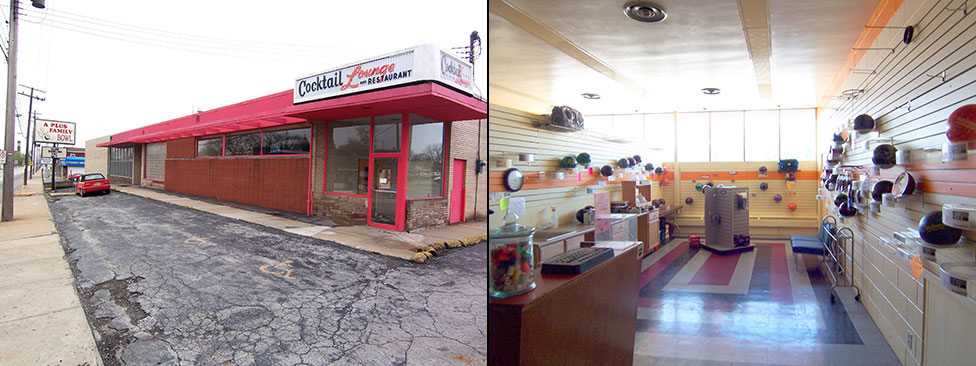Interview With Richard Kruse, Founder Of Gryphon USA
Submitted By:
Published On:
May 12, 2021

Gryphon manages the liquidation of a wide variety of distressed assets.
Over the past 25 years Richard Kruse has liquidated assets worth in excess of $2 billion dollars. His amazing career is a testament to the variety of opportunities available in the distressed property industry. His specialty has been court directed asset sales that include foreclosures, bankruptcies, and probate. He has managed the liquidation of single family homes, apartment buildings, commercial buildings, retail stores, manufacturing plants and even a dairy farm. In 2013 Richard was appointed by Governor John Kasich to the Ohio Auctioneer’s Commission. He served in that position for 5 years.
Richard fell into the distressed property industry by chance. In 1996 he worked as a fledgling, real estate broker. While listing his first client’s apartment building he learned that his client was in the process of losing his home to foreclosure. Richard determined that the best option for a fast sale at the highest price was an auction. He contacted an auctioneer and sold the property at a live auction that took place in the courtyard of an apartment building. After this successful transaction was completed, he began working with the auction company and his career grew from there. Over the years he built a network of connections with law firms and banks. Today Richard owns Gryphon USA based in Ohio. Gryphon is a 1-stop-shop that handles entire projects from asset management, rehab to final sale.
“We deal with everything from soup to nuts. We tell people that if you want to, you can hand me the keys and disappear and in a couple of months I’ll send you a report and a check.”

Gryphon managed the liquidation of this bowling alley in Ohio.
Much of the time Richard works as a court appointed asset manager called a “receiver”. A judge can only appoint a receiver if an asset is involved in active litigation. Typically this means one of two things.
- Two parties are settling a dispute in court and during the case a receiver is put in charge of the property.
- After a litigation is completed a receiver may be put in charge of a property to handle its management and sale. This is common in foreclosures.
Many times a receiver is recommended to the judge by one or both attorneys involved in a legal dispute. This is where Richard’s long standing network of connections with the legal community gives Gryphon an advantage. Regardless of who recommends the receiver only a judge is legally empowered to make the appointment. Although Richard works closely with the court system he doesn’t have a law degree. Receivers only need to have the capacity to manage properties on behalf of the court and file reports to keep the judge up to date on the project’s status. They may also communicate with the attorneys involved in the dispute to keep them up to date.

Gryphon managed the liquidation of this unfinished luxury home and rural cottage.
Although the law gives the judge the final authority over decisions the receiver is given a wide latitude to get things done. Ultimately Richard’s job is to assess the situation and solve the problems he discovers in the most efficient manner while staying within the court’s guidelines.
“If we get appointed to deal with a single family home we’ll go out and do the initial inspection and a lot of times we’ll remove the lock and change it because why pay somebody $150 to do it when I’m standing there anyway. A lockset costs me $7 and I know how to use a drill.”
It doesn’t usually make sense for Gryphon to handle most maintenance or rehab work so those jobs are contracted to outside companies. To maintain efficiency and quality Richard has developed long term relationships with the vendors he works with.
“If it’s get the grass cut we’re usually calling one company that knows what we need, knows what pricing is going to be acceptable and what’s not, knows what standard that it has to be done to, knows that they have to submit the invoice in a certain period of time to get paid. It’s all very structured and we try to utilize as many of the same vendors as we can over and over and over again.”
Gryphon follows the same protocol with financial and other service providers that they work with.
“Every time I need to open a bank account I go to the same banker. He knows exactly what I need to open up a bank account. He knows exactly what the court order looks like. He knows exactly what he needs to put in his files so it meets regulation.”
“Same thing working with the title company. We use the same title company over and over and over again because they understand what’s needed and what’s necessary.”
Richard’s long term view of business relationships enables Gryphon to deliver a consistent and reliable product. The business has grown tremendously over the past quarter century and today they handle roughly 1,000 foreclosure auctions per year.
In addition to residential real estate Gryphon has grown to handle many other types of distressed assets.
“We’re doing one right now where we’ve been called in to take over operations for a custom boat builder. We went in and secured all the assets, changed the locks, we’re paying the utility bills, we’re moving the stuff along to sale. We had to catalogue roughly 1,500 lots of different items, have those items appraised, apply to the court to have them sold.”

Gryphon managed the liquidation of this multi-family and rural property.
One type of project that Richard won’t take on is divorce cases.
“I will not do divorce. Divorce is personal, what I do is business. I don’t get involved in husbands and wives arguing.”
It should be noted that Richard’s lack of interest is not because this work isn’t lucrative.
“A lot of real estate agents make a lot of money doing it. But for me I made the decision a long time ago that there is not a dollar value that anybody has been able to come up with yet that would get me to insert myself into that problem.”
Looking forward Richard believes that 2021 - 2022 has the possibility to become a unique period for Gryphon due to the lifting of the Covid moratorium on foreclosures that began in March 2020. Since that time a tremendous volume of distressed homes have built up in the system. These restrictions may end as early as June 2021 and when they do he predicts a surge of activity over the ensuing 12 months.
“We’ll probably end up somewhere closer to 2,000 foreclosures.”
Richard's work in the distressed asset industry is an important part of the economy that most people don't think about. No one doubts that Covid restrictions were necessary to protect families during the downturn. However these same restrictions reveal what happens when distressed assets are kept off the market. Last year home prices increased by 12% which is much faster than family income. Economists agree that one of the main factors is low inventory. One of the reasons inventory is low is the dramatic reduction of foreclosed homes that would otherwise have been available for families to purchase. This experience shows how interdependent and important every part of the economy is. When the work of the distressed asset industry is put on hold, even if it's for a nobel reason we all feel the effect in the form of higher prices. Wherever Richard and his team at Gryphon are engaged important problems are being solved.
“We change the locks, we milk the cows, we crush the planes, we do all of it.”

When you work with distressed property you never know what you might find inside.
